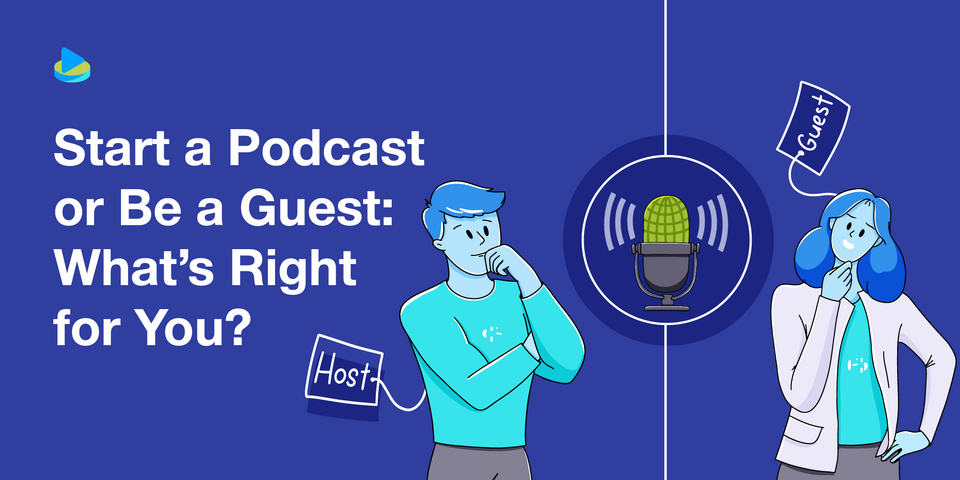There you are, scrolling through your favorite podcast platform and—once again—wondering should your brand be in this space?
But hold on. Should you be the podcast host leading the conversation? Or perhaps it makes sense for you to be the brilliant guest wowing the listeners on someone else's show?
Truth is, both routes can work wonders for your brand.
Choosing the right route comes down to your goals, your interest and experience, how much time you can set aside, and what you've got to work with.
So, let's dive into everything you need to know about podcast guesting vs podcast hosting. Here, we'll break down both options so you can figure out which path makes the most sense for your brand.
Table of Contents
The case for starting your own podcast
It doesn't really matter if you're a mega brand or a solopreneur. Branded podcasts can work in different stages of your customer journey funnel depending on HOW you go about it.
Top of funnel podcasts
Justin Welsh (who coaches internet solopreneurs) said something in his newsletter recently that really made me stop and think. He reckons that now there's so much generic AI-driven content around we have to change the way we think about funnels and treat them more as cylinders—wide and valuable all the way from top to bottom. That means giving immense value right from the start.
Creating your own show could fit perfectly into that idea. As a host, you can shape episodes that captivate your ideal audience and keep them tuning in. Focus on big-picture topics that spark curiosity and are easy to share. That way, you’ll attract new listeners who might not know your brand yet but are intrigued by your perspective.
Example - The CFO Show
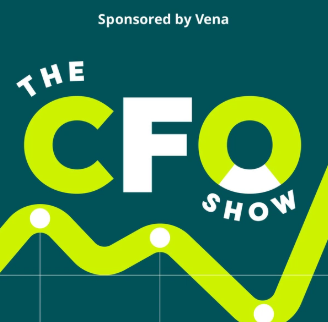
In The CFO Show, Vena's CFO, Melissa Howatson showcases her expertise and thought leadership in a show targeting CFOs, analysts, accountants and other financial professionals who want to enhance their knowledge of industry trends and best practice. Vena's target audience is primarily finance teams, so we can see how the podcast fits at the top of the funnel and helps generate brand awareness amongst the right people.
Content
The kind of content you create depends on who's listening and how well they know you and your brand.
At the top of our funnel/cylinder, B2B brands are helping other industry professionals learn to like and trust their brand by getting to know the people inside it. So, they might interview expert guests, provide educational content and discuss unique insights.
However, if you're a B2C brand, your podcast listeners aren't interested in how the industry works. You're introducing yourself here, so you'd focus more on creating an entertaining, lifestyle-related show that draws them into your brand's world.
The Sweet Fish perspective
James Carbary, is the founder of Sweet Fish Media, and says video podcasting works because it puts your people's personalities at the center of your content.
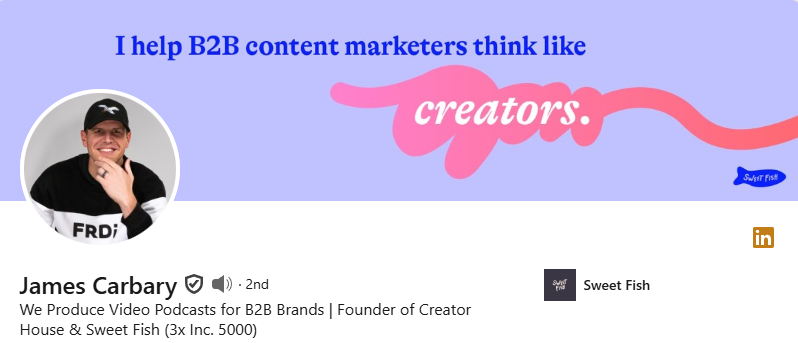
We asked James for his take on where video podcasts should sit in B2B marketing strategy.
"I think video podcasts sit at the top and middle of the funnel. If you’re distributing the content well (compelling clips for organic social as well & paid media for targeted distribution on your full length YouTube videos), these shows become great ways to get your market aware of you…and ultimately getting them to have deep affinity for your brand through the on-talent’s personalities."
Then we wondered what are the key factors to consider when determining the funnel stage for a new podcast?
"If the goal is brand awareness and thought leadership, the funnel stage is going to be top and middle of the funnel. If the goal is to break into target accounts by using the show to do content collaborations with decision makers at those target accounts, it would be bottom of the funnel."
And what are the most frequent mistakes you see brands making when deciding on their podcast's role?
James says don't neglect your own company experts when it comes to guest interviews, because they will reflect your brand's thought leadership.
"The biggest mistake I see brands making is not matching the format of the show to their goals. Most brands we work with want to use the show to shape their entire market around their company’s points of view. They ultimately want brand awareness and thought leadership. With our clients that want thought leadership, we help them understand that if they want to be seen as thought leaders…they actually have to lead with their own thoughts."
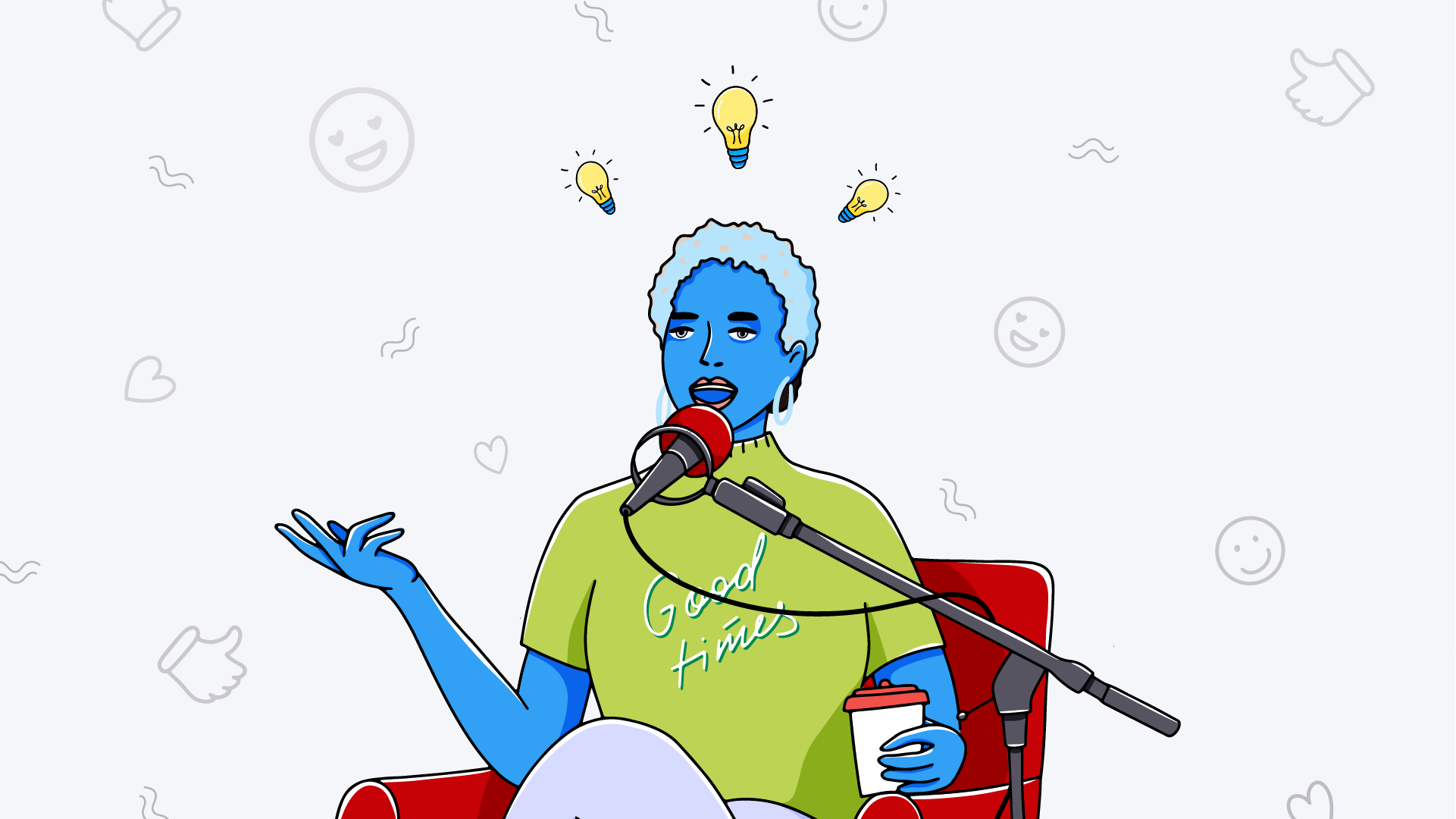
Mid-funnel podcasts
Here’s where many brands position their podcasts.
People halfway down your ‘cylinder’ are aware of their problems or needs and are actively searching for solutions.
Think of middle-funnel podcasts as a way to nurture potential customers. They entertain, educate, and highlight your brand’s unique benefits. These podcasts dive deeper with case studies and behind-the-scenes insights.
Example - The Creative Penn Podcast
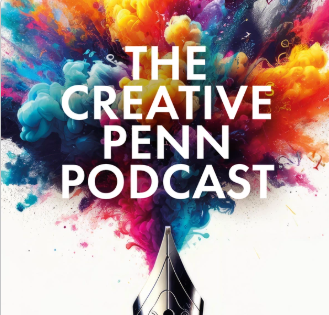
Joanna Penn is an indie author and long-time podcaster. In her podcast, she and her guests inspire and educate aspiring and established indie authors on how to improve their writing and have a successful career. The solution? It's found in her books!
Bottom-funnel podcasts
Bottom-funnel shows focus on closing that deal or sale that's within reach. This could be by keeping loyal fans engaged, or as James Carbary mentioned inviting target accounts onto the show to strengthen the relationship.
Podcast host challenges
Running a podcast can bring substantial rewards but it's a long-term strategy that takes time, energy and money.
#1. It takes time and practice to learn all the skills involved in podcast production, from researching and hosting, to recording and editing. You can outsource some or all of that to a podcast agency, but that comes with a price tag attached.
#2. Organizing guest appearances for your podcast takes time and effort, too. Many podcasters start with a hiss and a roar, only to fade from the airwaves a few episodes in as they realize the commitment involved.
#3. Does your personality suit being a podcast host? Even if you're an introvert at heart, running a podcast does mean talking to people, so consider whether that's something you can learn to enjoy.
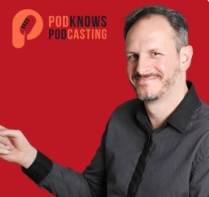
In fact, podcast consultant Neal Veglio admits he occasionally advises against being a podcast host "if the idea of recording an episode fills you with dread considering all the research you’ll need to do so you don’t sound like an idiot, and then on top of that, you baulk at the idea of recording original words exiting your mouth."
#4. Do you have a suitable voice? Neal goes on to say, "You need to be realistic about your voice...you do have to be self-aware enough that you know your voice isn’t going to absolutely grate on listeners."
So, will people enjoy listening to your voice's tone and timbre as it is now? If not, would professional voice training help, and can you commit the time and money it costs?
#5. You'll need to invest in some audio equipment and some sort of studio set up (even it it's just a cupboard, full of echo-muffling overcoats.) And if you're planning a video podcast, think about camera and lighting equipment, too.
#6. Consider the expense of podcast hosting and recording, too. Whether you hire an agency or do-it-yourself through a tool like Riverside or Podbean, there'll be some financial commitment to getting those episodes out.
DO NOT start your own podcast if...
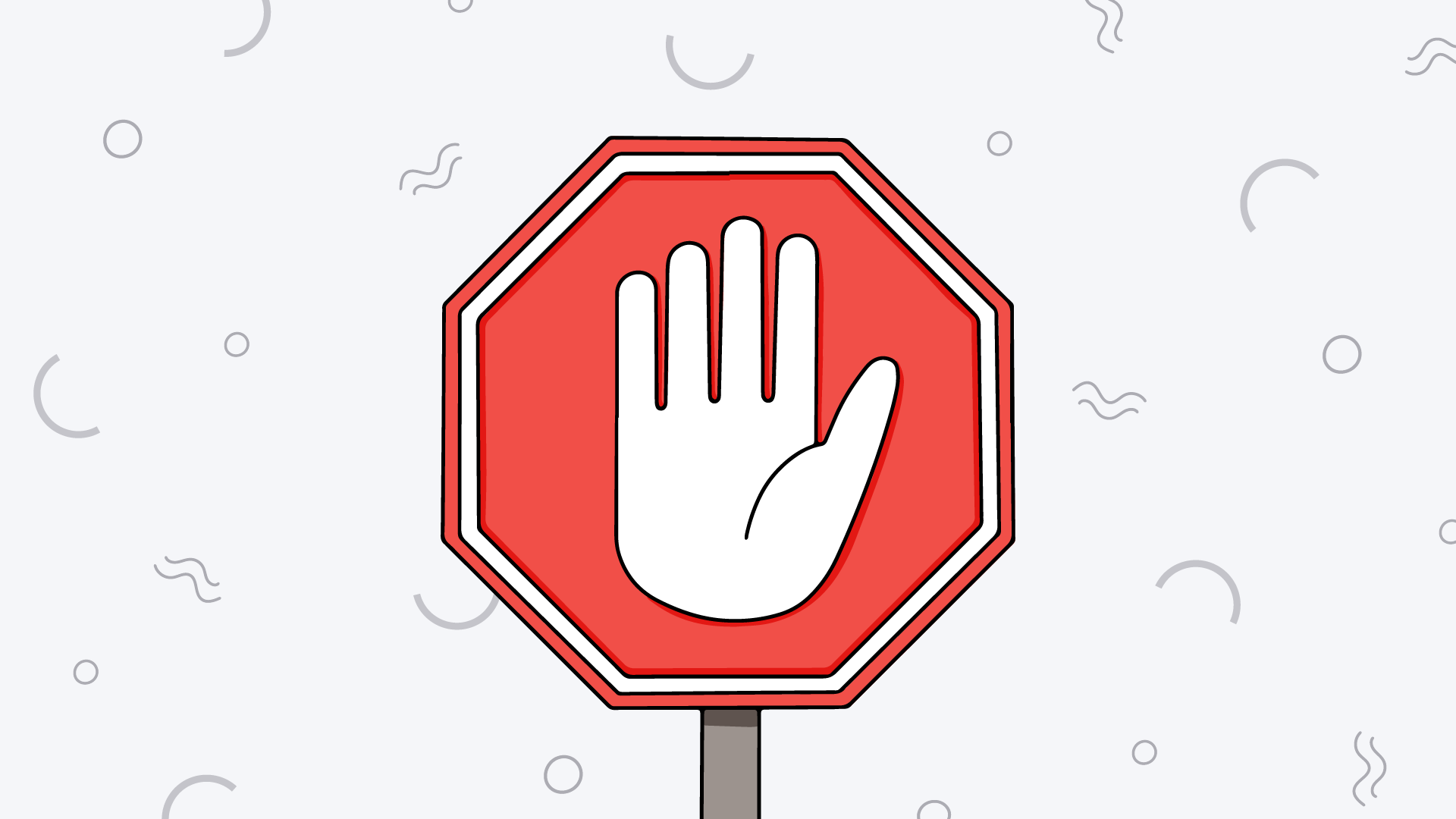
- You need quick results
- You're time poor
- You don't enjoy leading a conversation or listening to and learning from others
- You can't afford to (or don't want to) buy the equipment
- You need voice training but can't invest in it right now
Who should start their own podcast?
Businesses looking for long-term content strategy:
Unlike fleeting social media posts, podcast episodes are evergreen, living on your website and podcast platforms for years. Even if you stop producing new episodes, this content continues introducing potential customers to your brand.
Brands who want full control over their messaging:
A podcast gives you a direct line to your audience, creating an immersive experience through your unique tone and stories, the guests you interview, and your episode style and pacing. Over time, this signature style will make your brand memorable, positioning you as the go-to expert in your field.
Thought leaders (or aspiring thought leaders):
Running your own podcast gives you a platform. You can:
- Explore topics that matter to you and your audience
- Showcase your expertise or think through new concepts on air
- Lead the conversation and set the tone for your industry instead of just reacting to trends.
The case for being a guest on podcasts
When you appear as a guest on other podcasts, you tap into their existing audience. Even if those people haven't heard of you before, they'll listen to your episode because they trust the podcast host to interview guests whose message is likely to benefit their listeners.
That makes podcast guesting a powerful way to foster brand awareness and bring new people into your ecosystem.
Being a guest on podcasts lets you reach a brand new audience with every episode you record.
You might prefer to make a few guest appearances each month, keeping you in front of audiences in your niche or industry. Or you could do an intense burst of interviews over a few weeks (aka a podcast tour), then lie low for a while.
Either way, podcast guesting is a great way to build credibility without taking on all the work involved in running the show.
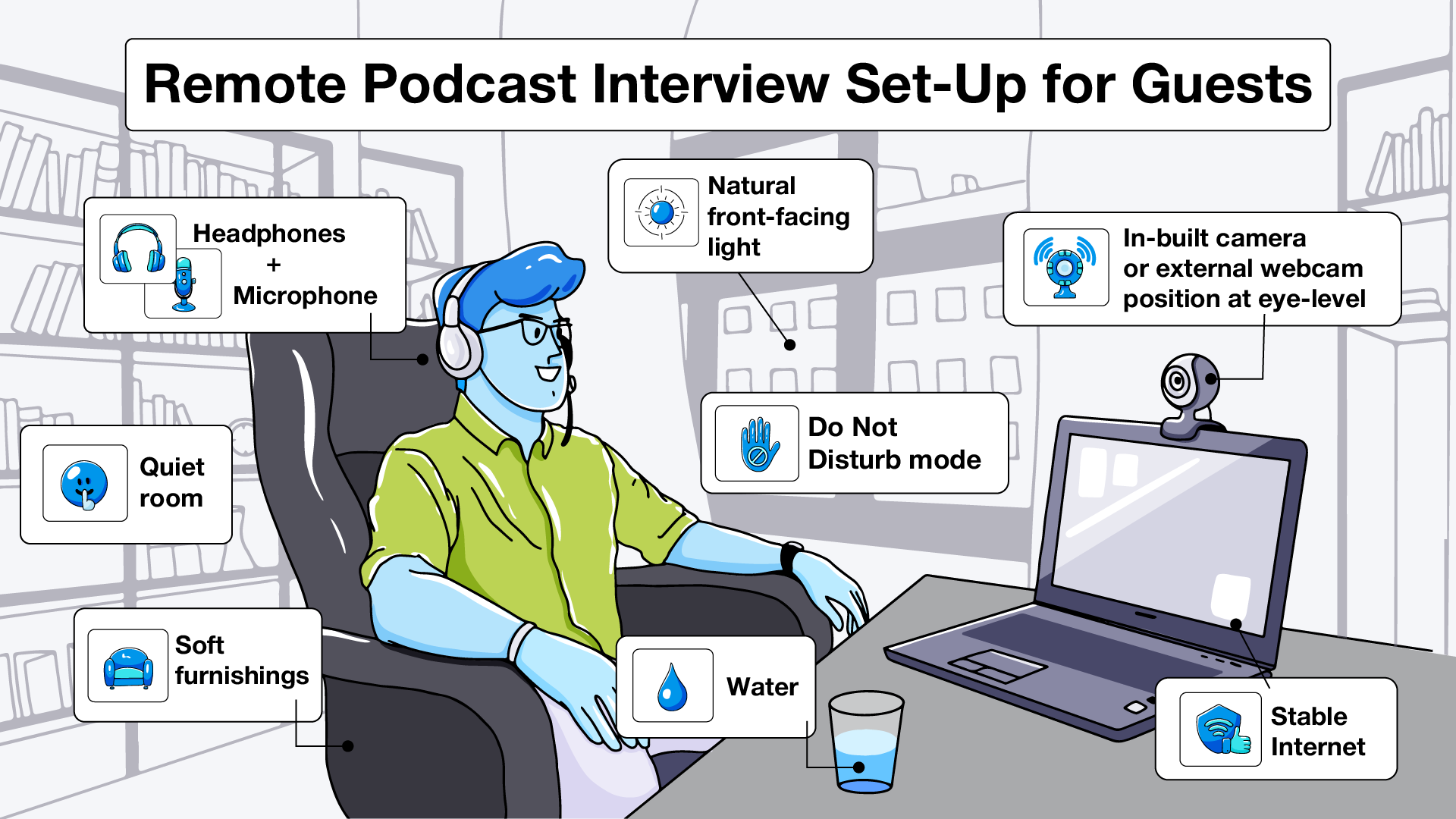
Being a podcast guest comes with nice SEO benefits, too. The host will usually mention your name and a link to your website or social media in the show notes. The more interviews you do, the more backlinks you'll have to boost your credibility and help your business climb higher in the search results.
It also gives you extra content to share on social media platforms or in your newsletter. Here's how.
Finally, don't underestimate the power of networking because guest podcasting can open doors to unexpected partnership opportunities. Sometimes, the host might need your solutions, or they may enjoy your interview so much that they recommend you to other podcasters.
Top of funnel
Podcast guesting tends to sit at the top or middle stages of your marketing funnel.
If you're launching a brand awareness campaign, podcast guesting is an ideal way to reach a new audience. Then, if people like what you have to say, they may start following you on social media, explore your website or even sign up for your newsletter.
Often, they might not respond after hearing one interview. But, then they’ll hear you on other podcasts and, eventually, reach out.
Mid-funnel
Some podcasts have highly specialized, niche audiences. So, being a guest on these shows can put you in front of people actively looking for a solution. They’re already “warm,” so your chance of conversion is higher.
With a clear call to action and valuable content, you can encourage them to take a closer look at what you offer.
You might even consider doing podcast interviews on shows that speak to advanced users looking for specific solutions. If you can demonstrate how and why you're the perfect fit, it might be enough to seal the deal.
DO NOT start podcast guesting if...
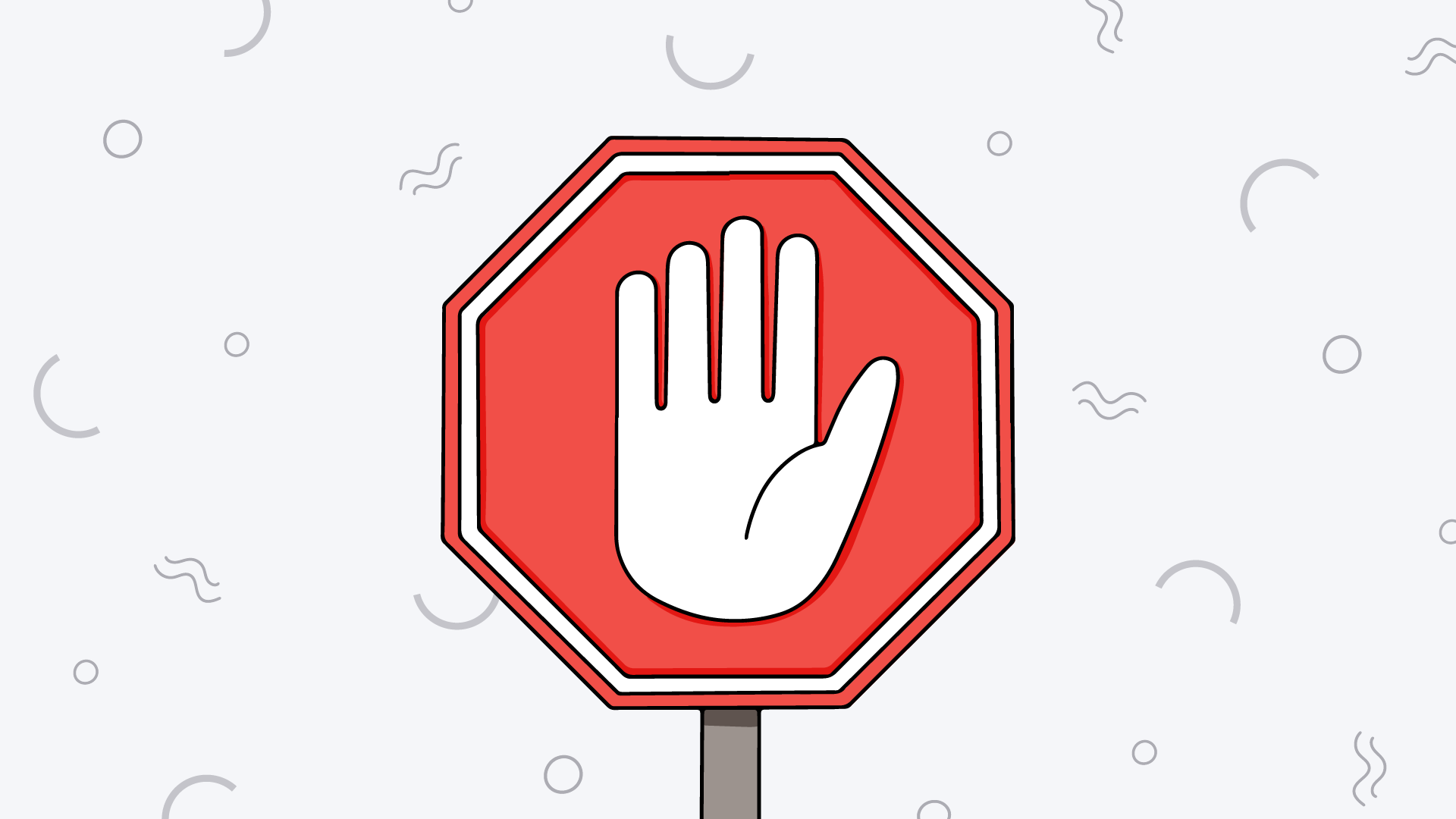
- Your marketing strategy calls for long-term trust and relationship building
- You can't offer expertise or an interesting story
- You won't promote and share the episodes when they come out
- You prefer writing to talking.
- You can't commit the time or energy. (Guesting isn't as time intensive as hosting, but you'll still need to research suitable podcasts, pitch the hosts, follow up, prepare your stories and give a good interview.)
Podcast guesting is best for:
Podcast guesting is best for entrepreneurs, PR pros, and brands looking to build authority and expand their reach without the ongoing workload of podcast recording.
It’s a great way to share expertise, tell compelling stories, and connect with engaged audiences who are already interested in your industry. Plus, with the right strategy, guest appearances can drive traffic to your website, generate leads, and strengthen your brand's credibility.
Real-life example
Have you heard of gloveglu? It's a glove care must-have for goalkeepers at all levels in the football (soccer) world. TikTok videos are a key marketing strategy for gloveglu to get the message out about their products. But founder Paul Sherratt actively promotes his business expertise through guest podcasting and live panel discussions.
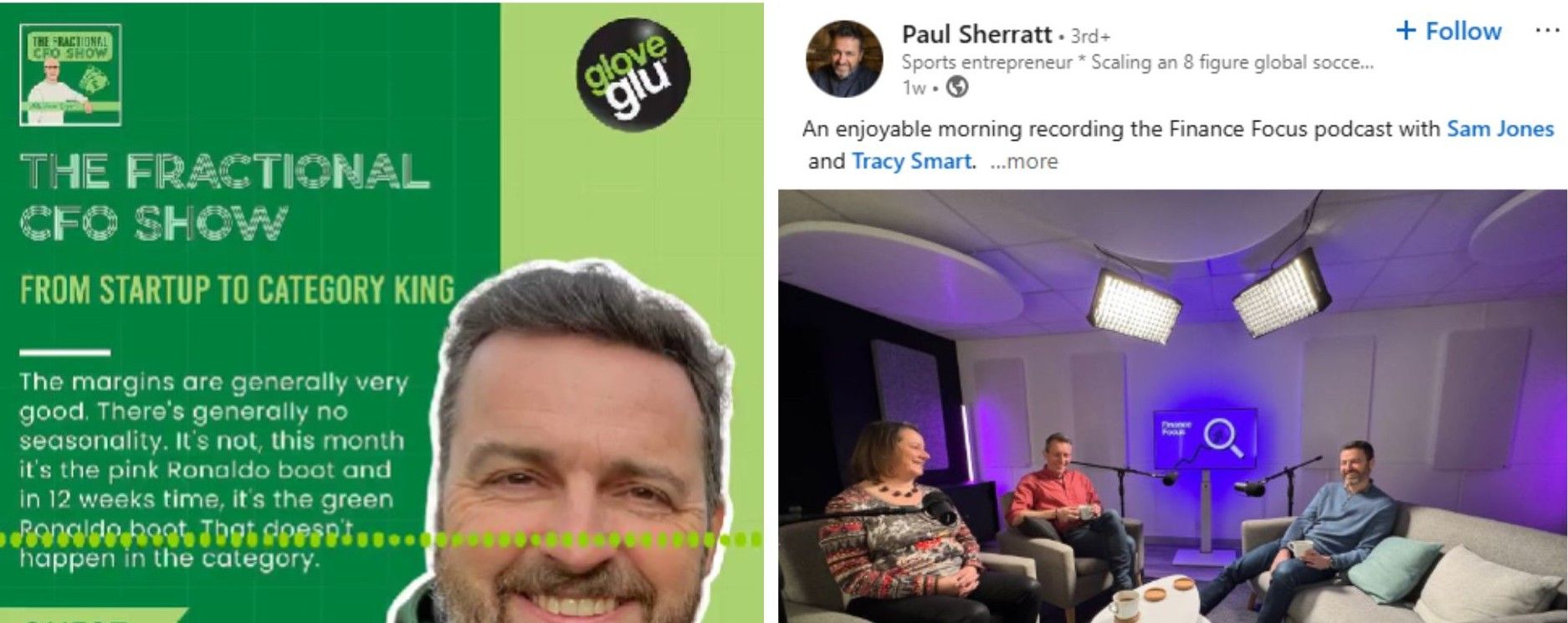
Paul often discusses business positioning and how truly successful brands "find the gap" in the market and become category leaders, using his company's experiences as an example.
At gloveglu, we didn’t enter the crowded goalkeeper glove market—we created an entirely new category: goalkeeper glove care.
That shift turned us from just another brand into the Category King.
He's also writing a book about his "find the gap" strategy, and I'm guessing he'll do a podcast tour or two to promote that in due course.
Gloveglu is a global brand, but podcast guesting works equally well for smaller brands too. Solopreneur Talya Heller told me about her successful guesting strategy in How to Attract B2B Clients Through Podcast Guesting, explaining how she's attracted clients and enhanced her professional reputation through her various podcast episodes.
Meanwhile, Alan Cassinelli, Blaze's Brand & Product Marketing Manager, explained how they used extensive podcast guesting in 2023 to promote a SaaS startup.
DIY vs. hiring an agency
For both podcasting and podcast guesting, you can choose the DIY route or the agency route.
Which one is right for you? (Decision framework)
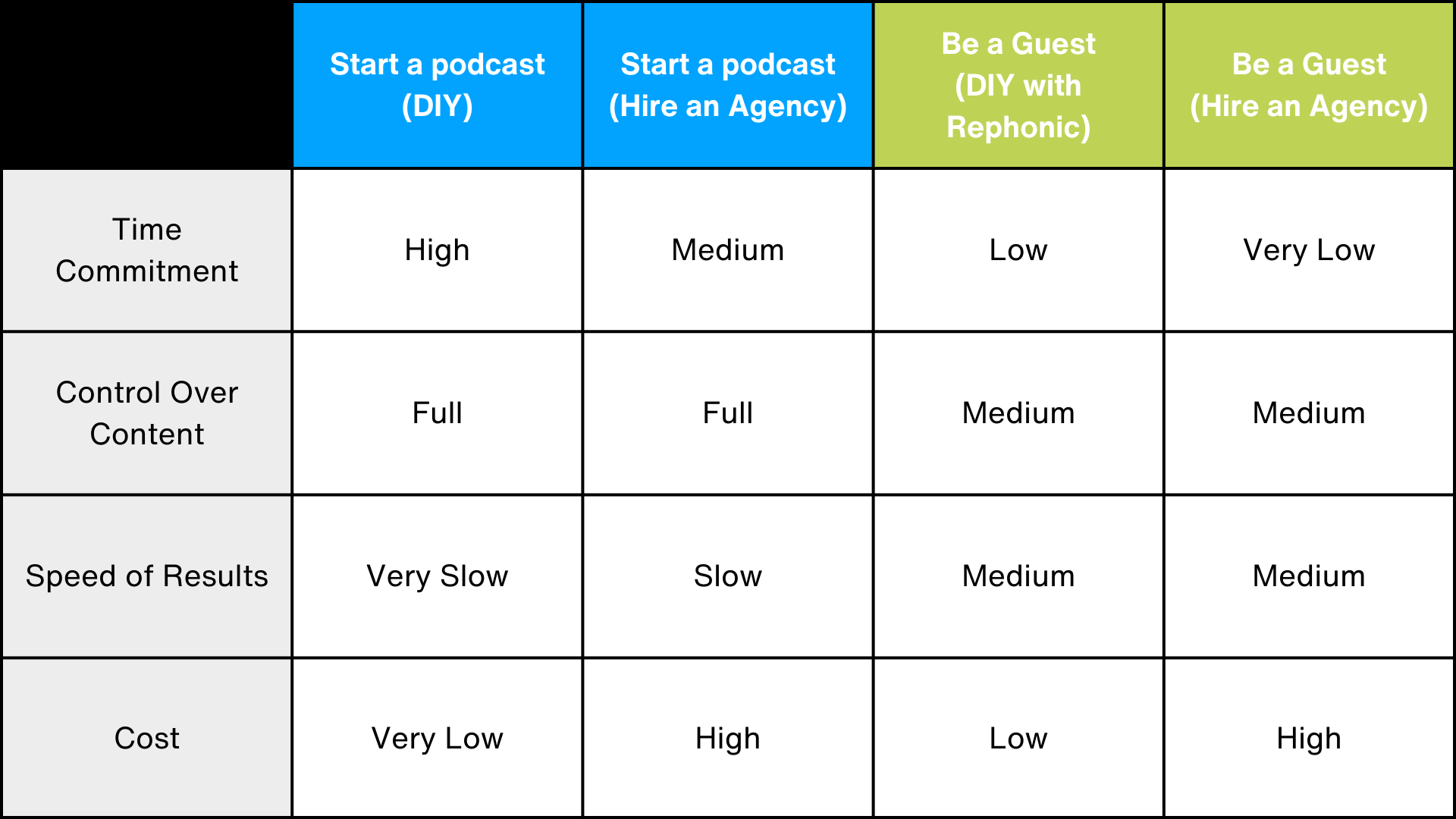
Podcast production
You need very specific skills to be successful at running your own podcast. For that reason, we probably wouldn't advise producing a podcast by yourself unless this is your area of expertise.
If you're serious about starting a podcast and getting results, use an agency. Depending on your goals and budget, they might even advise podcast guesting instead (as Voxtopica did, here.)
Podcast guesting
If you're podcast guesting, you can easily run successful campaigns whether you DIY or hire an agency.
It's less about your podcast booking skills, and more about your time vs. budget. A $500 budget is more than enough to test a DIY podcast guesting campaign. Here's a breakdown of how we recommend spending it to maximize your impact.
However, if you have a big budget and zero time, an agency is a better shout.
Could you do both?
If you want the benefits of both podcasting and podcast guesting, it's not impossible to do both, although it might be a large investment. Plenty of brands run their own shows and have their C-suite executives appear as guests on other podcasts, too.
Some run internal company podcasts, but also make them publicly available. Others podcast specifically to gain a wider audience.
Example
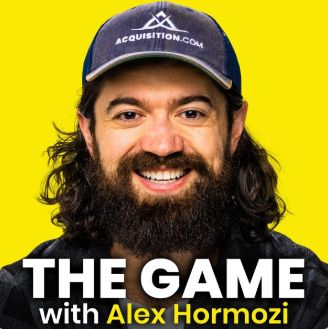
Alex Hormozi is one entrepreneur/investor who immediately springs to mind. Alex runs his own show where he talks about how to get more customers, keep them longer, the many failures he's had and lessons learned over the years.
But he's also got a very successful podcast guesting strategy, which we analyzed here.
Final thoughts
So, is podcast guesting right for you? Or does podcast production seem more like your style? Weigh up the pros and cons to make sure you choose the right approach before you dive into the podcasting world one way or another.
Why not check what shows would be a good fit for a podcast guesting campaign first?
Finding dozens of possible podcasts might be the catalyst to send you down that road. Running a podcast guesting campaign doesn't have to break the bank, either. (We worked it out at just under $500 for your first three months.)
It's easier to find podcasts using Rephonic's database. Try it yourself for free.
Article credits

Written by Lyn McNamee, podcast-PR writer with years of experience transforming podcast insights into practical, results-focused playbooks.

Edited by Becca Butcher, marketing specialist who frequently analyzes Rephonic’s data across 3 million podcasts.

